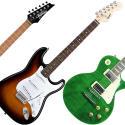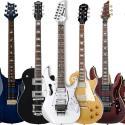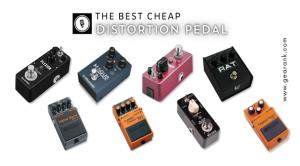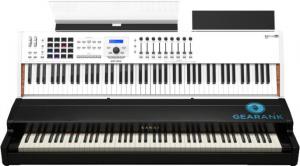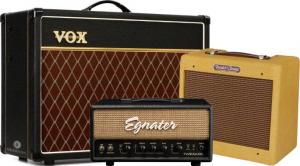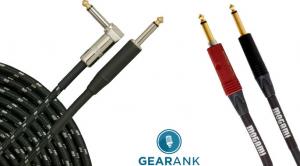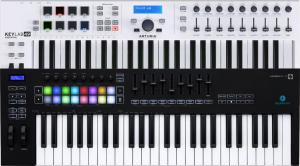The 5 Most Impressive Japanese Guitar Brands
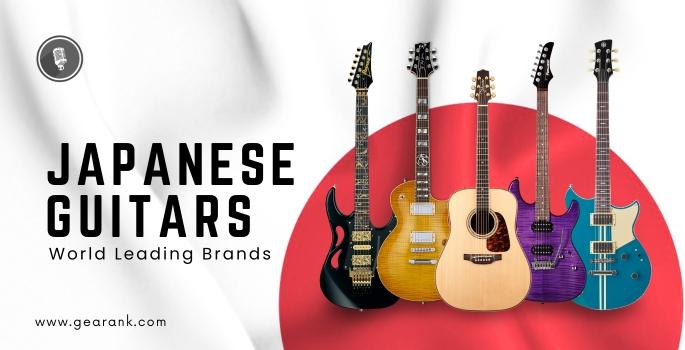
Japan has been a leading manufacturer of musical instruments and parts globally for decades. Some of the most prominent guitar players have endorsed the top Japanese guitar brands. This further cemented their reputation and influence in the field.
This article aims to provide insight into five of the most impressive Japanese guitar brands. I will discuss their history and what makes each guitar unique.
By the end of this list, you will get a brief idea of some of the top Japanese guitar brands. You can explore these less mainstream brands and decide if they are worth every penny or just plain imitations.
A Brief History of Japanese Electric Guitars
In the 1970s, due to significant market demand, the decline in the quality of American-made guitars was inevitable. It created a massive gap in the market, which caused an opening for new upcoming guitar manufacturers. This became an excellent opportunity for Japanese brands.
Japanese instruments at the time were already creating decent-quality copies. These copies are patterned after the big brands, like Fender, Gibson, and even Rickenbacker.
Japanese guitars also featured quality guitars that the market needed at the time. Manufacturers could lower the prices of these guitars significantly because these guitars were mainly made out of cheaper materials.
And when you have a cheap guitar with decent quality, it increases the appeal of these Japanese-made guitars. And because of that, Japanese guitar manufacturers could profit a lot.
The Lawsuit Era
With the rise of copies came confusion amongst consumers regarding which one was original. This divides the sales, which the big brands did not appreciate.
In 1977, the Norlin Corporation, Gibson's parent company, filed a lawsuit against Ibanez. This was done because they believed Japanese brands were taking away their customers. Specifically, they accused Ibanez of copying their original headstock style. Gibson's open-book style and Ibanez Standard's headstock were so similar that it led to this legal dispute.
However, in 1978, the lawsuit was resolved out of court, resulting in Ibanez changing its headstock design to what we recognize today.
Meanwhile, other Japanese guitar brands tried to avoid the same situation. What they did was remove the serial numbers from their products. This maintains a manufacturer's anonymous identity and helps them avoid legal implications.
Fender, on the other hand, established Fender Japan guitars as a joint venture between them and FujiGen Gakki (FujiGen Factory) in 1982. They saw that FujiGen guitars made in the style of their famous models were fine instruments, if not superior in quality. Instead of targeting them with a lawsuit, they sought collaboration. To this day, Fender music corporation is still producing electric guitars via Japanese factories. Vintage FujiGen Gakki guitars still fetch a high price on sites like Reverb and Ebay.
One way to distinguish Japanese lawsuit guitars is their lack of serial numbers. Due to the brief nature of the lawsuit era, only a few of these guitars have survived.
This made lawsuit guitars a collector's item—a piece of guitar history when Japanese guitar brands started introducing themselves to the world.
The 5 Most Impressive Japanese Guitar Brands
With the plethora of Japanese guitars, there's sure to be a guitar right for your specific needs. Here are the best Japanese guitar brands today:
Ibanez Guitars
History: Started in the early 1900s by Hoshino Gakki, the company was first known as a musical sales division of the Hoshino Shoten. The company's main operation was importing and selling Spanish instruments from Spain, mainly from a manufacturer named Salvador Ibañez.
By the 1950s, Hoshino had started manufacturing his own instruments. He named his new company Ibanez (minus the ñ) in honor of his partnership with the Spanish luthier.
The company's first focus was to make violins and classical guitars. But, when famous bands like the Ventures, Beatles, and Led Zeppelin came to Japan, people wanted electric guitars more. So, the company had to change and start making electric guitars to meet the growing demand.
In the beginning, they were making replicas. But mainly because of the lawsuit from Gibson, they continuously innovate their design.
Eventually, they were able to make a guitar design of their own. Since then, Ibanez has been at the forefront of Japanese companies when it comes to guitar innovation. They have become the go-to brand for those who want a high quality made in Japan guitar.
What Makes them Special: Ibanez guitars are known for their sleek and ergonomic body shapes. This provided players with a comfortable and distinctive instrument.
They're also versatile. With models covering different genres, you're sure to find an Ibanez guitar for each of your specific musical needs.
Ibanez guitars are known as shredder guitars. They are often praised for the fantastic playability of their guitars. With wide and flat neck profiles, Ibanez guitars allow players to play with speed and precision—a perfect guitar for rock, metal, or jazz.
And if you're looking for value for your money, Ibanez also has you covered. They feature models at different price points. If you want a beginner guitar as a gift or if you're a pro who wants a dependable workhorse, Ibanez has quality instruments for you. Ibanez also worked with sub-contractors like Sugi guitars who were building their high-end guitars.
If you want to sound more like your favorite artist, Ibanez has a massive range of signature guitars. These guitars are tailor-made to fit their endorsers' needs and playing styles.
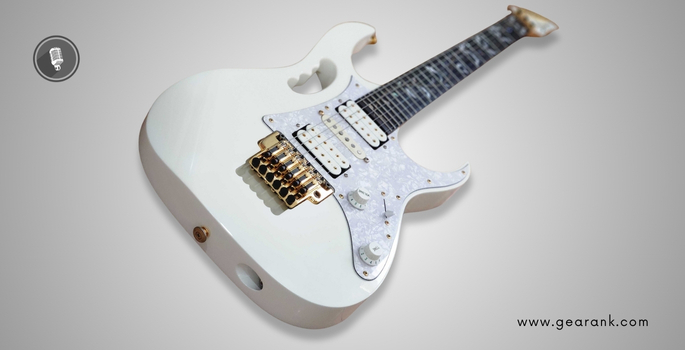
Famous Ibanez Guitar Players:
-
Steve Vai
-
Joe Satriani
-
Paul Gilbert
-
George Benson
-
Tim Henson and Scott LePage (Polyphia)
Yamaha Guitars
History: Yamaha is one of the world's biggest manufacturers of musical instruments. Their products include acoustic instruments like woodwinds, brass, and pianos. They also have stringed instruments like violins, violas, cellos, and vibraphones.
Yamaha first manufactured their first instrument (a reed organ) in 1887. At this time, the company was still known as Japan Musical Instrument Manufacture (Nihon Gakki Seizo).
In 1987, a hundred years later, the Japanese guitar company was officially renamed after its founder, Torakusu Yamaha. Although Yamaha is now more closely associated with motorbikes than musical instruments, its logo - three interlocking tuning forks - still hints at its musical origins.
What Makes them Special: They are known for the versatility of their guitars and their build quality. They have models for genres such as jazz, rock, or pop. Yamaha guitars are made with quality materials. This ensures durability and rich tonal character.
It includes everything from carefully selected tonewoods down to the electronics.
Their guitars also have unique shapes that are indeed their own. Yamaha stands out by avoiding the generic guitar body types of American brands like the Les Paul model, Strats, Telecasters, etc.
You can indeed have a fantastic and reliable instrument with a unique body and great-quality materials.
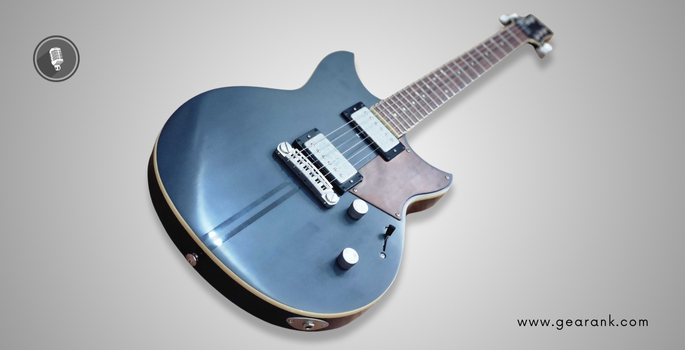
Famous Yamaha Guitar Players:
-
Carlos Santana (Pre-PRS)
-
Mike Stern
-
John Scofield
-
Pat Metheny
-
Matt Pike (Sleep/High on Fire)
-
Bill Kelliher (Pre-ESP)
ESP Guitars
History: ESP was founded in 1975 by Hisatake Shibuya. Initially, the company was a Japanese guitar manufacturer of guitar components and replacement parts.
ESP gained attention in the late 1970s and early 1980s because of their practice of making custom guitars for professional musicians, which they still do today.
What Makes them Special: ESP guitars are made with absolute precision and the utmost regard for perfection.
What makes an ESP guitar so unique is its aggressive and extreme design. This Japanese guitar brand is particularly popular with players in the metal and rock scenes.
Their Japanese manufacturing team is composed of workers who also play guitar. So, you can be confident that skilled artisans and guitarists have tested their products.
Plus, you can get many custom designs with ESP for a premium. They are your go-to Japanese instrument maker if you want a specific design or decorative guitars.
Famous ESP Guitar Players:
-
James Hetfield (Metallica)
-
Kirk Hammett (Metallica)
-
Alexi Laiho (Children of Bodom)
-
George Lynch (Dokken)
-
Will Adler (Lamb of God)
-
Stephen Carpenter (Deftones)
Fernandes Guitars
History: Fernandes Guitars started as a company making classical guitars. In their case, flamenco guitars. But they soon moved out and focused on electric guitars, precision bass guitars, amps, and accessories.
Fernandez Guitars was one of the manufacturers who became known during the lawsuit era. Because of their quality and craftsmanship, Fernandes Guitars earned recognition on the market.
What Makes them Special: One of the most popular things that came out of Fernandes is, surprisingly, not a guitar. Instead, they became famous for a guitar accessory, their sustainer system.
It's an electronic device installed on a guitar. It uses electromagnetism to vibrate the strings for an extended time. One of the most popular users of this system is Steve Vai.
Famous Fernandes Guitar Players:
-
Billie Joe Armstrong (Green Day - Uses a modified Fernandes "The Revival" RST-50)
-
Hide (X Japan)
-
Neil Schon (Journey - Uses a Fernandes Sustainer system)
-
Steve Vai (Uses a Fernandes Sustainer system)
Takamine Guitars
History: Takamine Acoustic Guitars started manufacturing guitars in 1962. It got its name from Mt. Takamine, where their then-family-run music shop opened in 1959.
Takamine is one of the most popular Japanese guitar brands for acoustic guitar. They initially started with classical guitars. But soon, they moved to steel-string acoustics and electric guitars.
What Makes them Special: Takamine guitars pioneered using "Palathetic under-saddle pickups." Unlike ordinary pickups, Takamine pickups penetrate the bridge, bridge plate, and soundboard.
This creates direct contact with the saddle of the acoustic guitar. Which provides a direct sonic link with the strings. As a result, you get an isolated string signal from each individual string. This creates a rich resonance and tone articulation.
Famous Takamine Guitar Players:
-
Bruce Springsteen
-
Jon Bon Jovi
-
Garth Brooks
-
Nancy Wilson (Heart)
-
Glenn Frey (Eagles)
Final Thoughts
A Japanese guitar is a masterpiece crafted with love and hard work by skilled artisans. They take great pride in producing high-quality instruments.
They can be made from expensive materials or more affordable ones. Regardless of the price point, you can trust that every Japanese guitar is well-made.
Japanese guitars have earned a reputation as stand-out instruments. Thanks to their innovative designs and features.
This shows that they are more than just copies of other brands. They are unique works of art that are highly regarded by musicians all over the world.
Frequently Asked Questions
Are Japanese Guitars a Good Choice for Beginners?
Yes, Japanese brands such as Ibanez have models that suit players from beginners to intermediates. In addition, these guitars also have multiple scale sizes.
So, if your hands are small or you are planning to gift it to a child, you can choose from smaller-scale versions.
Where Can You Buy a Guitar in Japan?
The best place to start your search for quality guitars is by checking local music and instrument stores.
Tokyo is the best city for buying a guitar. It even has its own "guitar street," locally known as Meidai Street, in Ochanomizu in Bunkyo ward.
This long road is lined with musical instrument stores that all offer a great choice of instruments. Including classical guitars, flamenco guitars, and many other high-quality guitars.
Some stores exclusively sell Gibson guitars or other boutique brands you can only find in Japan.
Where Can You Buy Japanese Guitars Outside Japan?
Yamaha, Takamine, ESP, and Ibanez are some of the best Japanese guitar brands from major retailers in the United States.
Amazon and used musical instrument platforms also often have a good choice of various guitar models and brands. You might even find a vintage guitar or classic Japanese stringed instrument on vintage guitar specialty sites.
Contributors:
Raphael Pulgar - Editor / Co-writer
Jerry Borillo - Illustrator




